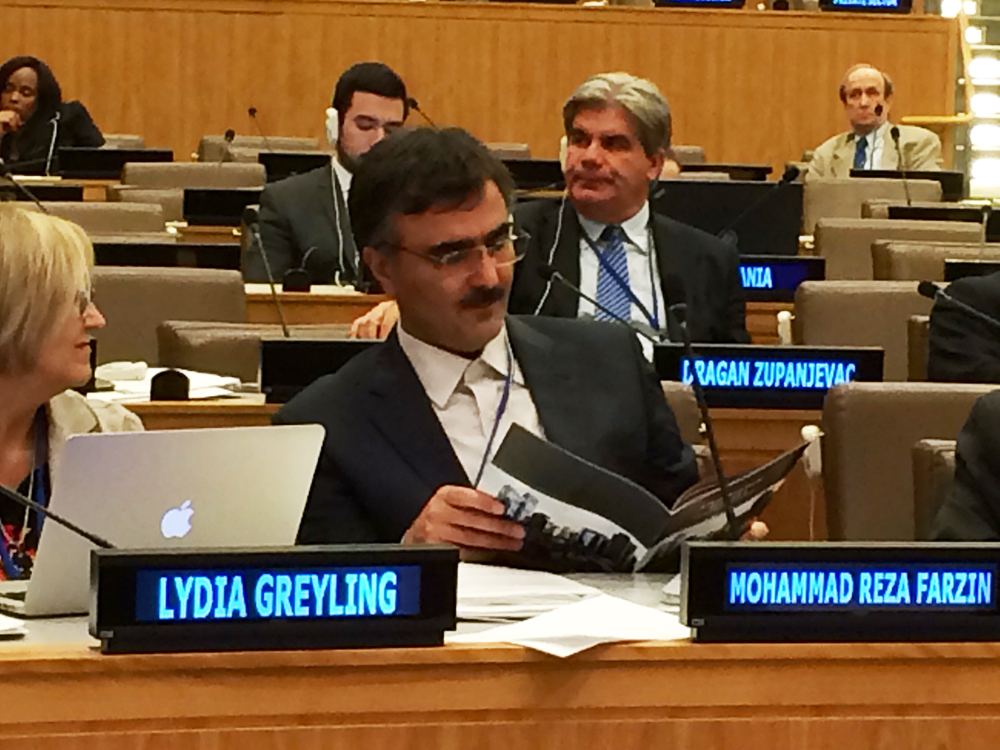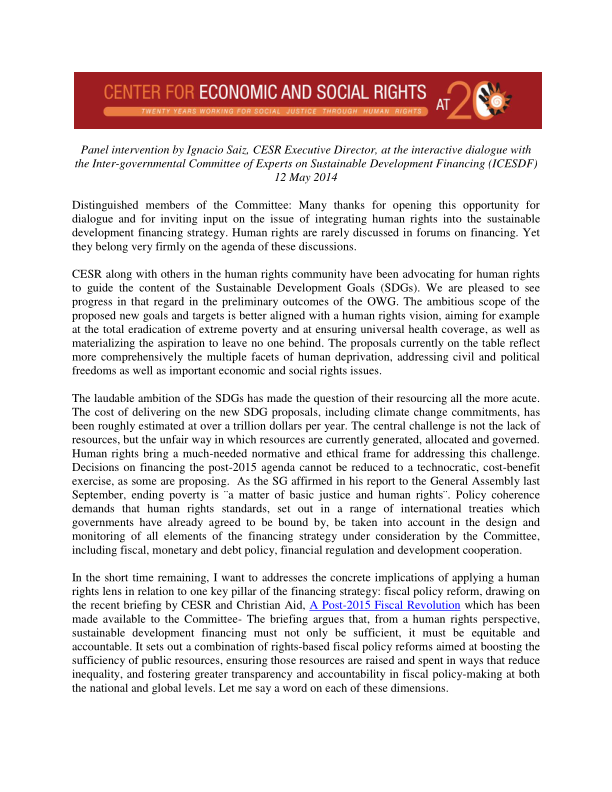CESR has urged the UN Committee tasked with devising a post-2015 development financing strategy to tackle the fiscal injustices undermining sustainable development and human rights.

Speaking at the interactive dialogue of the Intergovernmental Committee of Experts on Sustainable Development Financing (ICESDF), which held its third session on 12 May, CESR's Executive Director Ignacio Saiz addressed the question of what it would mean in concrete terms to integrate human rights into a post-2015 financing strategy.
"The central challenge is not the lack of resources, but the unfair way in which resources are currently generated, allocated and governed," said Ignacio. "Placing human rights at the foundation of sustainable development financing should serve to make public financing for development more sufficient, more equitable and more accountable at the national and global levels."
Drawing on CESR's recent briefing published jointly with Christian Aid, A Post-2015 Fiscal Revolution, Ignacio highlighted a range of actionable fiscal reforms which could be put in place to unleash between US $1.5 and $3 trillion per year in additional public funding, countering the myth that states cannot generate sufficient resources for development and so must rely increasingly on partnerships with the private sector. Proposed reforms include international commitments to tackle tax evasion and other illicit financial flows, as well as concrete efforts to increase domestic resource mobilization through progressive taxation.
Fiscal policies introduced as part of the financing strategy should also be aimed at tackling inequality and halting current trends that see us returning to 19th century levels of wealth concentration. The strategy should enable more effective monitoring of who benefits from the way resources are raised and spent, drawing on the experience of rights-based gender and disability budgeting. The post-2015 strategy should also aim to create a new culture of accountability in fiscal governance at both the national and global levels. This means strengthening fiscal transparency, increasing access to information and ensuring meaningful and democratic participation in how fiscal policy decisions are made and reviewed.
"We hope the Committee will not shy away from making bold and ambitious recommendations commensurate with the scale of the challenge we face," said Ignacio. "The failure of our action so far calls for radical new approaches. Human rights provide a mandate, if not for revolution, for a profound transformation in the way financing for development is conceived and governed."
Other civil society panelists and respondents addressed the Committee on the need for reform of economic governance, private sector regulation and accountability. They also tackled the issues of safeguarding the rights of indigenous peoples and people with disabilities, the experience of solidarity economy initiatives, and ensuring the participation of people living in poverty in policy design, implementation and monitoring. The Committee co-chair, Mr. Mansur Muhtar, said the civil society inputs would inform the deliberations of the Committee, which is due to report in September 2014.
